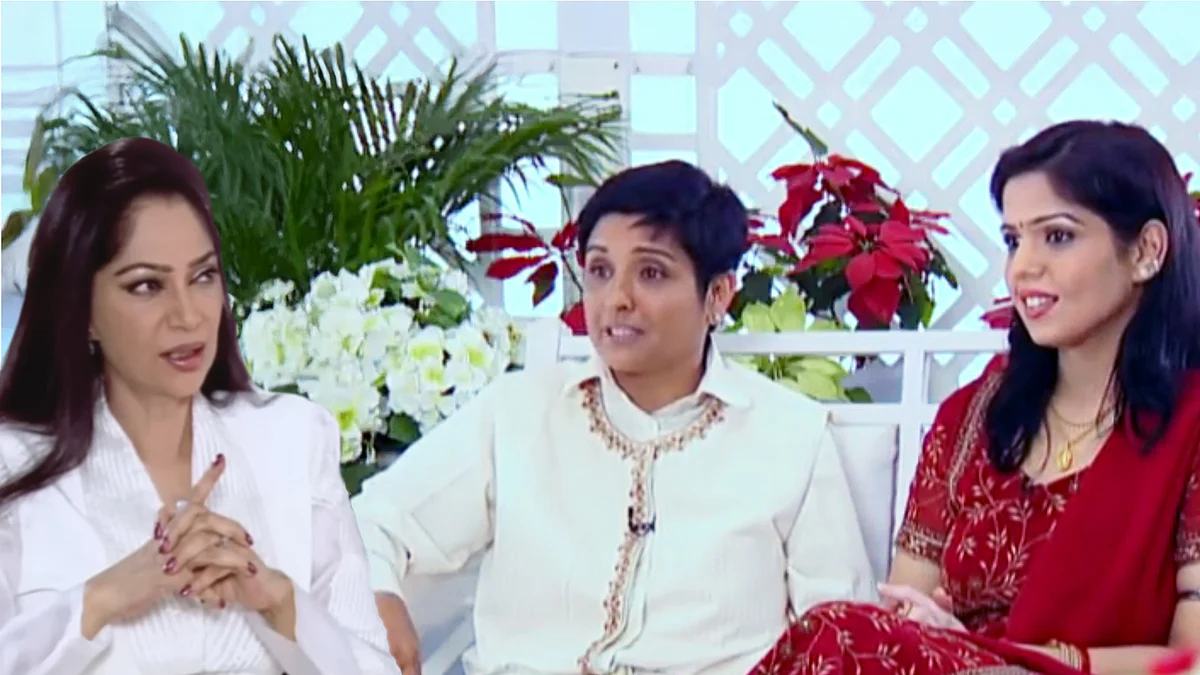The Kiran Bedi Tapes: How top cop used Delhi police officials to surveil her daughter
We sifted through hundreds of emails and nearly 30 hours of tapes. Bedi told NL-TNM she requested the police to ‘save an innocent life’ and ‘the police did its duty’.
Editor: Nikita Saxena
The spring of 2003 should have been a season of triumph for Kiran Bedi. The first woman to have joined the Indian Police Service and a recipient of the Ramon Magsasay award added to her achievements that January. She was appointed the civilian police advisor to the United Nations’ peacekeeping department. No woman or Indian had held this job before. The daredevil cop’s three-decade-long career was fast becoming the stuff of lore.
Around this time, Kiran and her daughter Saina – then in her late-twenties – appeared on the popular talk-show, Rendezvous with Simi Garewal. They were candid about the demands of Kiran’s job and effusive in their expressions of love for one another.
“What have you inherited from your mother,” Simi asked Saina.
“My inheritance is credibility,” the soft-spoken young woman replied. “Being Kiran Bedi’s daughter means instant honesty, instant courage – everything good.”

Behind the scenes, this legacy was soon to be the subject of a heated conflict between the pair. “I am a very concerned mother at home,” Kiran said early on in the same interview. The pithy phrasing didn’t quite convey the tumult that seemed to be brewing in the backdrop of Kiran’s prestigious appointment.
According to emails that we accessed, Saina was in a relationship with Gopal Suri, a married hotelier in central Delhi. The two were engaged in an unscrupulous money-making scheme that involved people who sought international visas, for which they leveraged Kiran’s public profile.
Kiran was aware of these dealings and she did not approve. In one email, she expressed her frustration and Saina’s continued support for Gopal’s business, which Kiran referred to as “human trafficking.” Kiran also worried that if Saina were to be investigated, the damage to her future would be irreparable.
On the one hand, Kiran responded as a distraught, if domineering parent. She oscillated between imploring Saina to change course, pressuring her, and attempting to reach out to Saina through the people she was close to. On the other hand, Kiran responded like a cop. Not as the incorruptible officer she portrayed herself to be in public narratives; but as a powerful person willing to bend systems to her will.
Since she was away in New York for her UN posting, Kiran mobilised a group of friends and colleagues to help keep an eye on her daughter in Delhi. Emails exchanged between Kiran and these people reveal that even as she took some steps to issue public alerts about Saina and Gopal’s ruse, she used her official connections within the Delhi police to mount an aggressive surveillance operation on the couple.
We asked the police officials involved if this operation had any formal authorisation. They did not respond to our queries.
Almost two decades after Delhi police officials conducted this exercise at Kiran’s behest, we accessed copies of hundreds of emails exchanged between Kiran and her confidantes and the police officials involved in the surveillance operation. We also accessed reports from a private detective agency that had been hired to physically tail Saina and Gopal as well as more than 20 cassette tapes, comprising nearly 30 hours of recorded material from the surveillance.
What emerges from the emails and tapes is a trail of evidence that suggests a decorated police officer used her power and influence to settle a sordid personal affair. The surveillance operation violated the privacy of Kiran’s daughter, as well as that of her daughter’s partner. Moreover, even though the police officials involved in the operation were aware of the questionable methods the couple deployed for their visa business, they seemed to have demurred from formally pursuing any legal action against them.
Meanwhile, according to one email, the operation yielded a possible lead about the sexual assault of a Swiss diplomat in 2003. This lead was never communicated to those investigating the assault.
We asked experts at Earshot, a UK-based non-governmental organisation that specialises in audio analysis, to examine one of the tapes that we accessed from the surveillance operation. “We believe that the recording is unedited and original,” a report by Earshot stated. Earshot’s researchers analysed the voices on the recording against other audio clips we obtained. After a “thorough voice comparison,” they were of the opinion that the voices on the recording belonged to Saina and Gopal.
Subscribe now to unlock the story

Why should I pay for news?
Independent journalism is not possible until you pitch in. We have seen what happens in ad-funded models: Journalism takes a backseat and gets sacrificed at the altar of clicks and TRPs.
Stories like these cost perseverance, time, and resources. Subscribe now to power our journalism.
- Paywall stories on both Newslaundry and The News Minute
- Priority access to all meet ups and events, including The Media Rumble
- All subscriber-only interaction – NL Chatbox and monthly editorial call with the team
- Stronger together merch – Fridge magnets and laptop stickers on annual plan
₹ 500
Monthly₹ 4999
AnnualAlready a subscriber? Login
